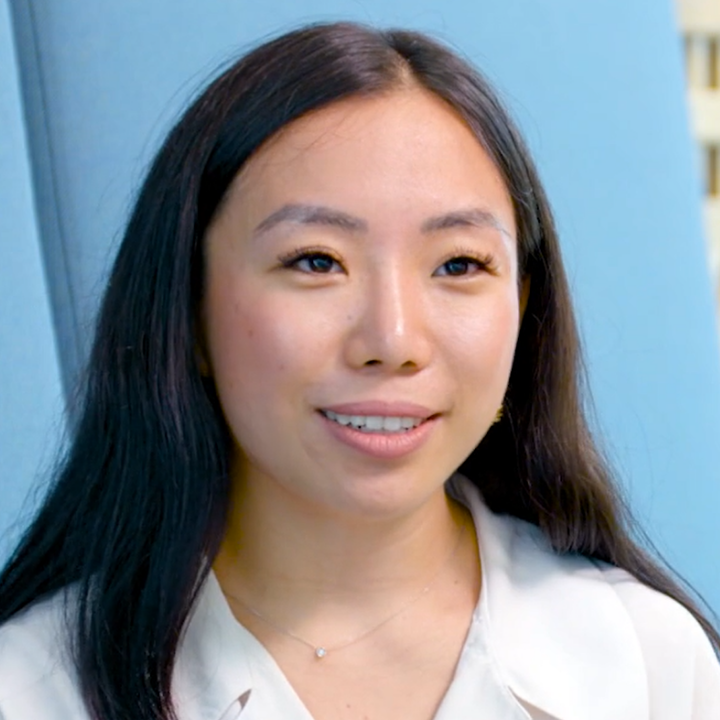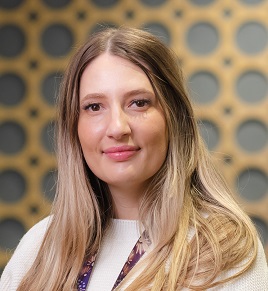Department of the Prime Minister and Cabinet
0 opportunities
Australia
101-1,000 employees

Elise Connor
Bachelor of Nursing
As a university student, it is quite an ordeal thinking about where you want to end up in your professional career. Some degrees are far more streamlined, whereas others have flexibility with what career path you take. If you are confused or unsure about where you might want to end up, this is my advice to you.
I studied a Bachelor of Nursing from the University of Queensland. I loved this degree as I got a wide range of clinical experience while dipping my toes into public health policy. Now I know you may be sitting there thinking ‘How did she go from a Nursing degree to public policy at PM&C?’ - That is a great question, let me tell you.
PM&C is an incredible place to work. Studied maritime science? Fantastic. Studied economics and law? Also fantastic. PM&C is trying to find the most versatile graduates, graduates that can provide new insight to policy due to their unique experiences. They want to know if you can transfer the skills learnt from your degree into practical work. I have used most, if not all, of my soft skills from my Nursing degree. Critical thinking, compassion, diligence, these are all skills I have applied to my roles within the Department. Basically, if you don’t think your degree is relevant – it is.
It is okay to be unsure with what you want to do. It is okay to study nursing, or law or even journalism and think ‘Heck I’m really unsure if this is exactly what I want to do’. There are so many paths you can choose, and PM&C truly provides for all backgrounds. I have been able to work on the COVID-19 vaccine rollout, national security policy and in HR. I am still unsure where I will finally land in the Department, but that’s the beauty of it – I am free to choose and I know that my skills will be transferrable and recognised wherever I go.
PM&C is looking to hire you for who you are. If you can write, well that certainly will help, but there is nothing that PM&C expects from you prior to joining the graduate program. And there will be so much that you can bring to the Department – it’s a win win for all. Don’t try sell yourself for something you’re not. The best thing you can be is you, and sing it to your assessors.
This is your sign you’ve been waiting for. I am screaming at you telling you to apply even if you think you don’t fit the ‘criteria’, because I can guarantee the criteria that you think PM&C is looking for is so not it. If you are diligent, hardworking, are willing to give something new ago, then PM&C is for you.

Ju-Hi Jin
Bachelor of Social Work/Law
Hello! My name is Juhi, and I am a 2021 graduate at PM&C. I studied a combined Social Work and Law degree in Sydney, and worked for one year as a social worker and paralegal prior to joining PM&C.
Moving to Canberra was never part of the plan. Subconsciously I believed working at PM&C was not the path for me or a real option within my grasp. I would love to share how this year has joyfully challenged this belief, alongside other preconceptions of full-time work.
1. You don’t need to be a specialist.
Growing up as a child of immigrant parents, I believed I had two career options: lawyer or doctor. I dutifully pursued the former and from the first year of university felt immense pressure to figure out what I’d specialise in. This stemmed from the belief that my twenties were a time to narrow down and develop mastery, requiring careful and deliberate steps towards a career. Not becoming a lawyer is one of the best things that has ever happened to me.
Policy is really fun. I feared it’d be tedious and dry, rearranging numbered paragraphs in long documents. Instead, I have found policy to be fast-paced, varied and all about responding to societal needs. I get the best of both worlds from my degrees – the people focus of social work and the critical problem-solving of law. I have also learned there is a word for people with short attention spans who are interested in lots of topics – generalist.
2. You don’t need to be a political whiz.
A large reason why PM&C felt so foreign was that I didn’t identify with the image of a public servant in my head. Someone confident and articulate, who is always on top of politics and reads The Economist for fun.
My parents own a restaurant and didn’t go to university. I didn’t grow up discussing politics around the dinner table. They wouldn’t be able to identify the Prime Minister.
This year has taught me that you don’t need to be any type of person to work at PM&C. You don’t need to be a debating champion. You don’t need to have studied politics, economics or law. The things that make you feel different are what empower you to analyse policy from a different angle.
3. You do need to be curious and open-minded.
The undoubtable highlight of my graduate year has been the people. Everybody I’ve met at this department are as supportive as they are intelligent and hard-working. I have laughed every day at work.
However, my colleagues are all so different. Not much unites them in background, studies or life experiences. Even my graduate cohort is comprised of unique individuals with degrees ranging from nursing to software engineering. Reflecting on the qualities they share, they are curious, committed and kind.
Although this does not mean much coming from a stranger on the internet, I wish you good luck on your journey. I know how daunting this process is. This year has taught me that life is not linear and it’s ok if things don’t go to plan. Holding onto rigid expectations may close doors before they’ve even opened. Whether you end up at PM&C or not, everything will be ok.

Katie Wylie
Bachelor of Criminology & Criminal Justice
My experience as someone who wasn’t very aware of politics and Government in General
When I first started applying for graduate programs in Canberra, I was concerned that I wouldn’t know enough about Government or politics to either get the role, or to be able to perform well in it. I had never paid much attention to local or federal Government, and coming from a background in social sciences, I didn’t have the same exposure that my Political Science or International Relations friends did.
As I started to apply for jobs, I made sure to figure out what areas I was interested in and had a genuine passion for. I paid attention to the areas of focus and recent work that different Departments had completed to narrow down where I would apply, and found that this research also helped during the application process (especially when completing writing tasks).
When I started at Prime Minister and Cabinet (PM&C), I realised that people in the Department had a wide range of knowledge regarding Government processes and politics in general. I found it reassuring that not everyone was an expert, and you are still able to complete high quality work and participate in work conversations without feeling left behind.
As we went through the year, both the Entry Level Programs team and the rotations that I went through were really invested in my learning and development. As a Grad, you’re given a lot of opportunities to attend training sessions, and this really fast-tracks your learning. I’ve started to listen, read and watch more content related to Government and now that I’m dealing with these topics on a daily basis, it’s easier to understand and be invested in what’s going on.
While there is an advantage to people who have completed relevant degrees or who keep up to date with Government, this job is about so much more than what you know about Government or politics. It’s the skills and experience you have from past jobs and completing a university degree, it’s the passion you have for the areas that you care about, and it’s becoming immersed in work or conversations and realising you have a genuine curiosity to learn more.
I’m really glad that I did apply to these programs – I’ve used elements of my degree and past work experience to succeed within the program, and I’ve gotten some amazing experiences already (contributing to a speech the PM gave, working on the COVID-19 Health Response, and writing briefs for the Secretary). I would highly recommend anyone from any degree and with any amount of previous work experience to apply – your value add to the Department isn’t what you know, but what you can do.
